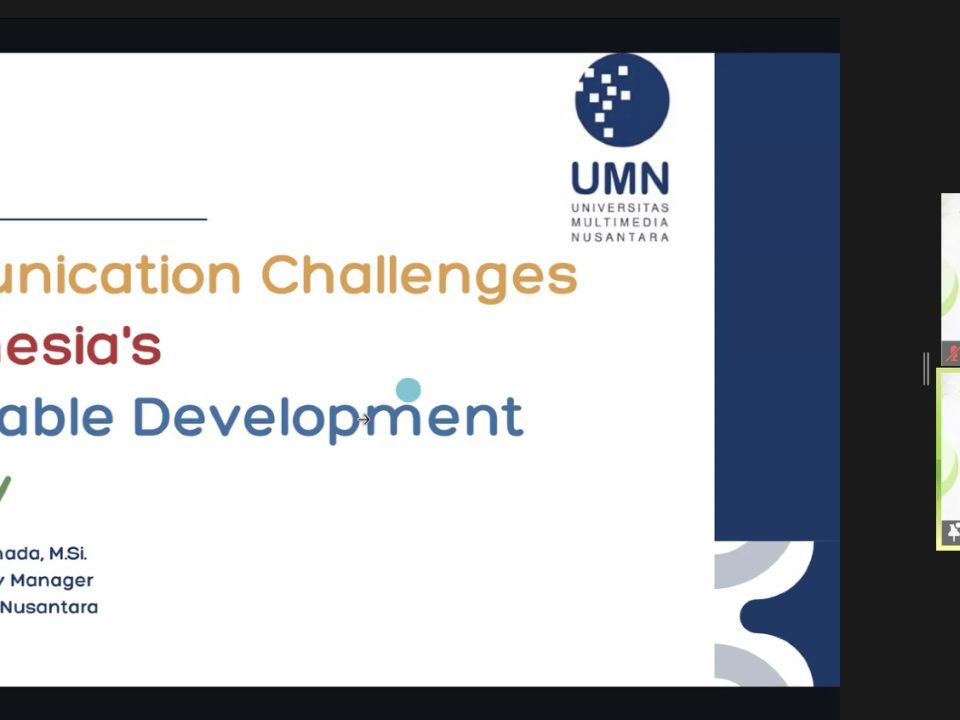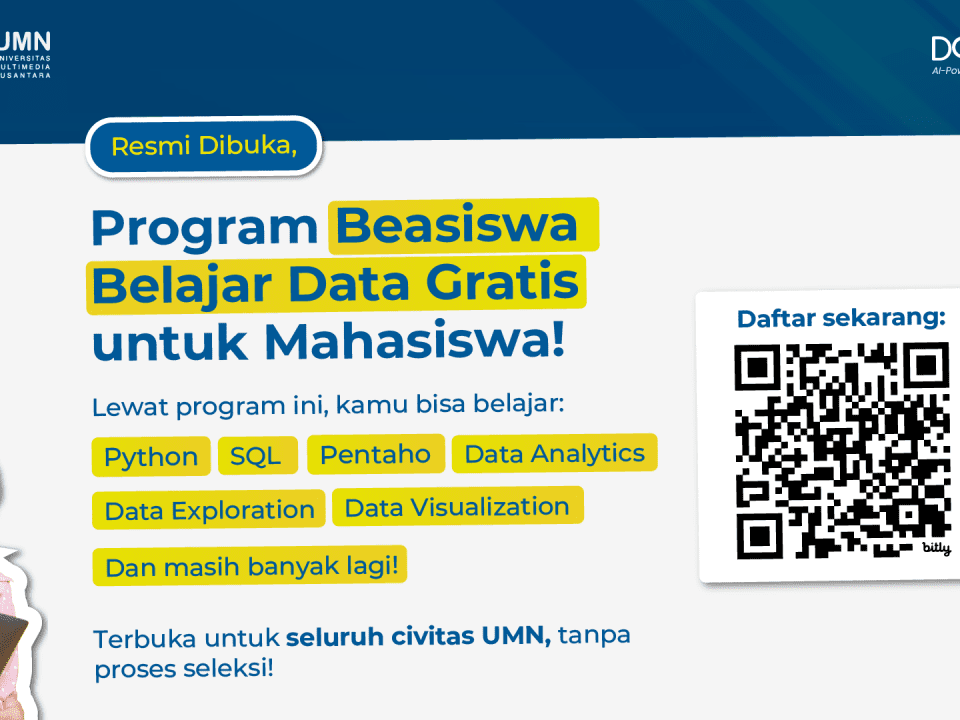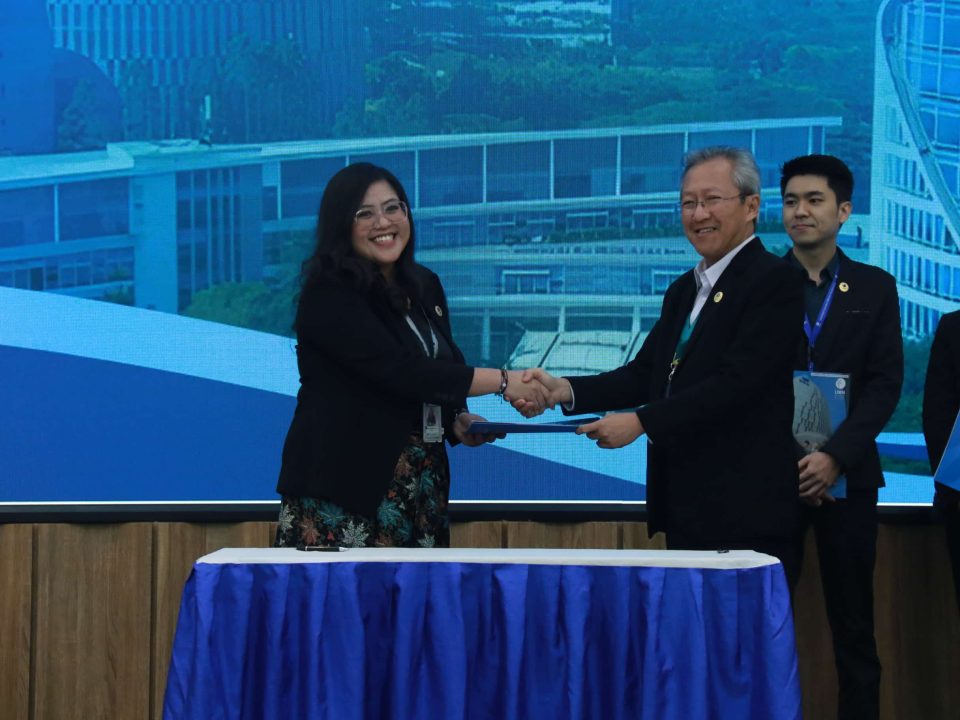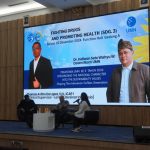
The Second Day of Pekantara Educates Students on the Dangers of Drugs
December 14, 2024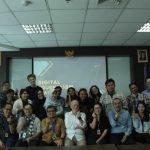
UMN Hosts Meeting of The Indonesian and Malaysian Journalistic Alliance
December 19, 2024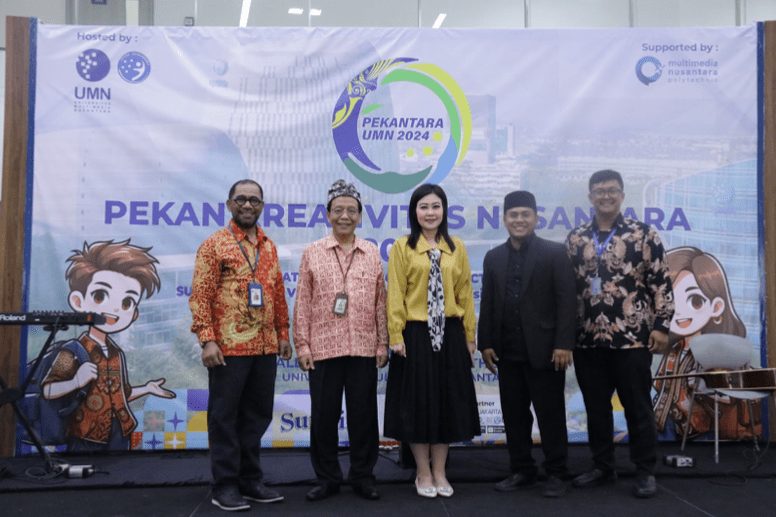
Joint Photo of the Inauguration of the Opening of Pekantara 2024. (Doc. UMN)
Tangerang – Universitas Multimedia Nusantara (UMN) held Pekantara (Nusantara Creativity Week) 2024 on (9/12/2024). This year, UMN collaborated with Multimedia Nusantara Polytechnic. Students and the community of Bandung Village, which is under the auspices of the UMN Institute of Research and Community Service (Lembaga Penelitian dan Pengabdian Masyarakat/LPPM) UMN, attended this activity.
This year’s Pekantara has the theme “Integrating The National Character Into The Sustainability Values: Shaping The Indonesian Golden Generation.” Pekantara is intended to raise and hone student creativity and raise an important pillar for Indonesia, namely sustainability.
“Pekantara is very satisfactory, and I hope it can be held regularly every year in order to preserve the existing culture and integrate UMN values and UMN’s vision and mission,” Dr. Friska Natalia, S.Kom., M.T., UMN Vice-Rector for Academic Affairs, said.
Friska also said that UMN’s focus is not only on academics but also on student character development. For Friska, this activity can encourage student creativity and improve education at UMN.
“So far, UMN has been very helpful to our village, starting from batik training and English training. This is a good opportunity not only to make our own batik but also for our community to produce their own batik. UMN is here in our midst to help us, and I hope it doesn’t end here because we need UMN’s support to continue to grow,” Wahyu Kusnadi, the Village Head, said.
For Wahyu, UMN implements the Tri Dharma of Higher Education very well. This is because Wahyu feels that UMN has helped improve the economic level in Bandung Village.
This activity was followed by seminars with Agus Sunaryanto as Indonesia Corruption Watch and Dr. Drs. J. Johny Natu P, M.M., UMN Lecturer. The first-day seminar discussed “Anti-Corruption and Poverty Reduction: A Path to Prosperity”. This discussion departs from Sustainable Development Goal No. 1.
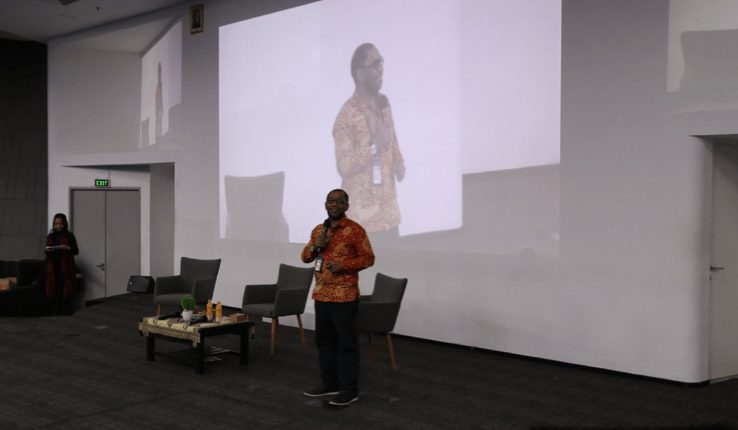
Opening of the seminar by Simon. (Doc. UMN)
“One of the things that makes our country poor is the problem of corruption, and today, we must know how to fight corruption. Currently, corruption is the main problem in the media or news, and finally, they are free. Fighting corruption is not only about the people and institutions but also from ourselves, especially you, the young generation,” Simon Petrus, the Coordinator of Humanities Studies, said at the opening of the seminar.
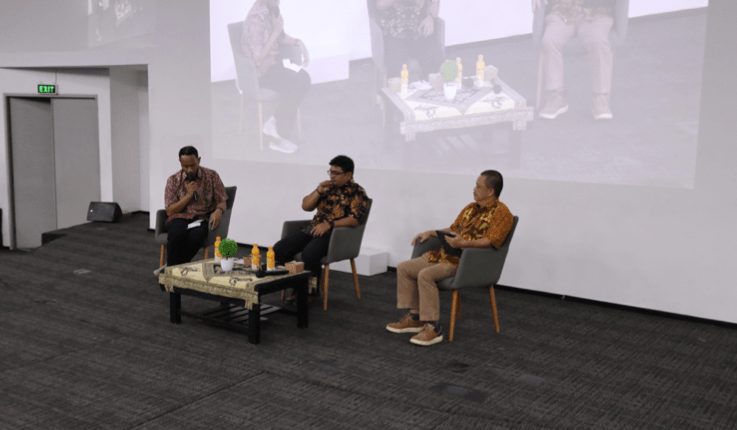
Presentation of material by Agus and Johny (Doc. UMN)
On this occasion, Agus explained Corruption in Indonesia in “Together with the People to Eradicate Corruption.” In the seminar, Agus briefly explained that corruption is bribery, extortion, and nepotism.
“The causes of corruption are diverse. It can be due to the weakness of leaders, the weakness of religious and ethical education, poverty, no harsh punishment, or an environment that normalizes corruption. Poverty can occur because human life is lacking, and there are also many types of poverty,” Agus said.
According to Agus, several strategies can be used to eradicate corruption. The first is synergy with education, prevention, and education. The second is following the perpetrators and also seizing their property or assets. The third is open participation and collaboration with the people, government, and the private sector.
“I hope all students here know about what corruption is and get involved in anti-corruption. The spirit of anti-corruption is vital, especially for the younger generation,” Agus concluded.
The seminar was continued by the second speaker, Johny. He discussed “Anti Corruption Behavior.”
“This is an approach to how we build anti-corruption behavior from an academic aspect. People’s perceptions and behavior towards corruption are divided into two groups: active corruption and passive corruption, both of which are for profit,” Johny said.
Johny also explained several corrupt attitudes, including abuse of authority, giving or promising something for one’s interests (bribery), theft of money, and giving or receiving gifts for mutual interests.
“Education can be one of the ways to eradicate corruption, UMN itself strongly encourages the UMN 5C value and emphasizes basic ethics in learning,” Johny concluded.
By Rachel Tiffany Tanukusuma | UMN News Service
English translation by Levina Chrestella Theodora
Kuliah di Jakarta untuk jurusan program studi Informatika | Sistem Informasi | Teknik Komputer | Teknik Elektro | Teknik Fisika | Akuntansi | Manajemen | Komunikasi Strategis | Jurnalistik | Desain Komunikasi Visual | Film dan Animasi | Arsitektur | D3 Perhotelan , di Universitas Multimedia Nusantara. www.umn.ac.id

